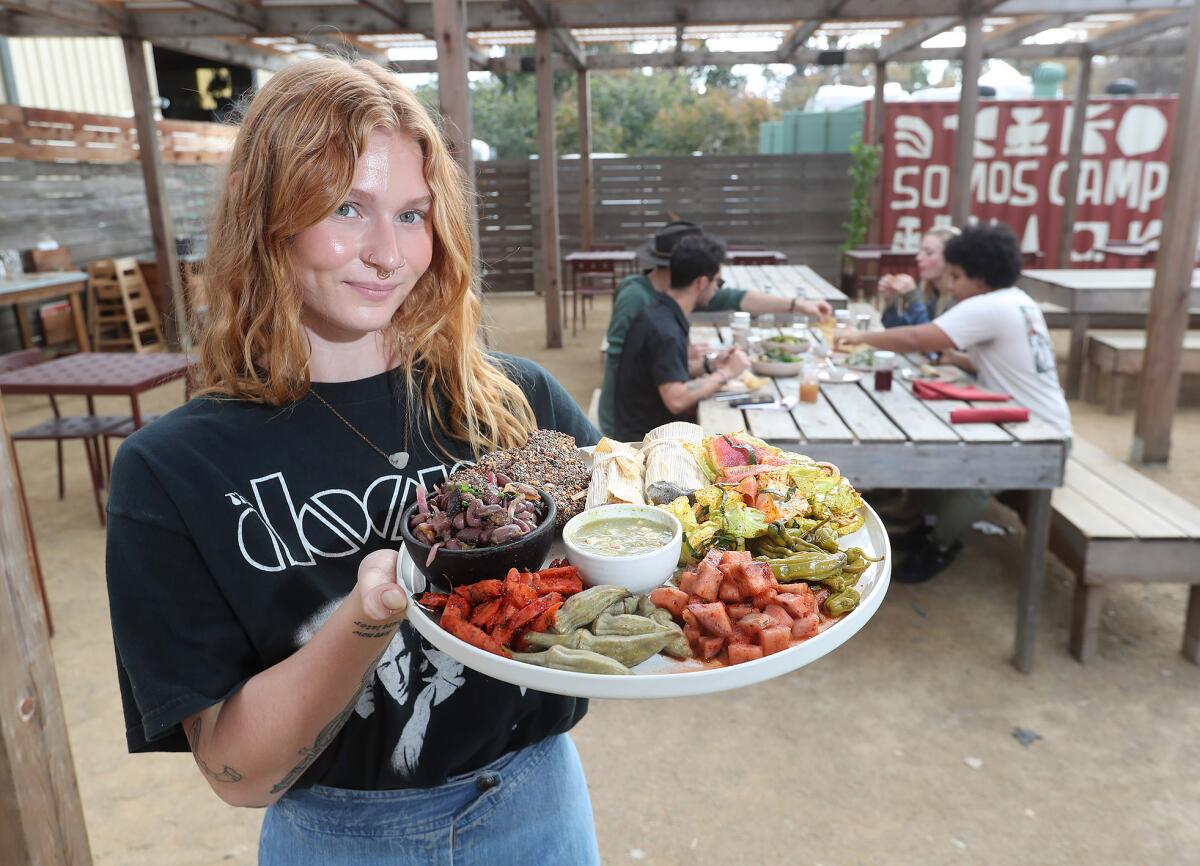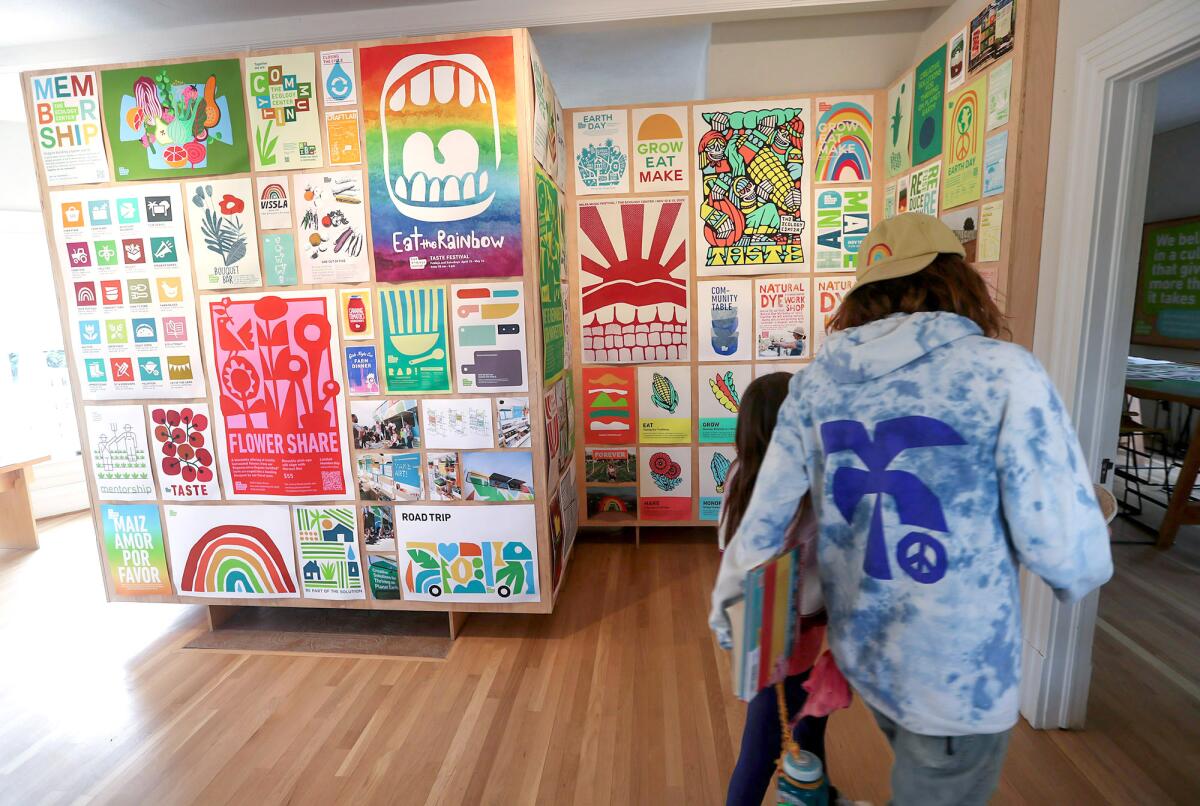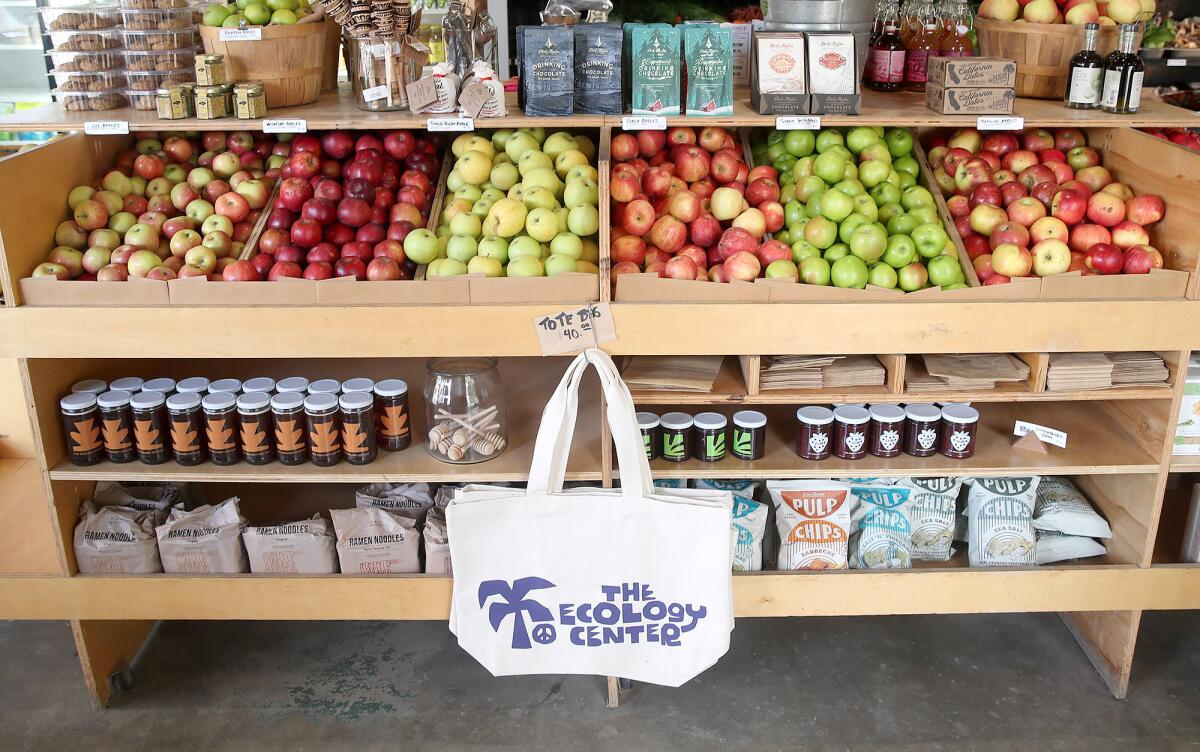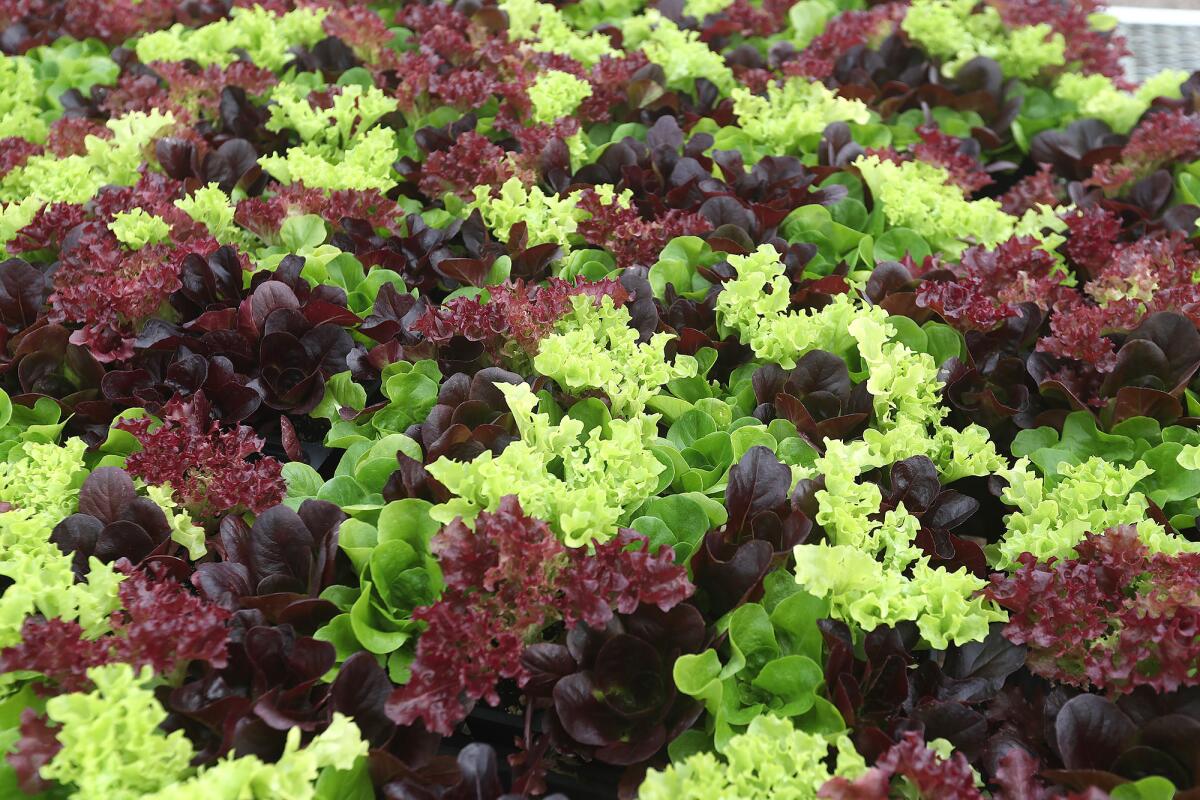‘Traditional and radical’: The Ecology Center celebrates 15 years in San Juan Capistrano

- Share via
Back when the Ecology Center started in 2008, the nonprofit had no more than a 140-year-old farmhouse and an acre of land in San Juan Capistrano.
“We were looking to create a common gathering place — a community center where creativity and problem solving was present, such that we could embody our stewardship values as a community caring for the earth and the people,” said founder Evan Marks in a recent interview. “What is needed for our community to build relationship to one another and, ultimately, to our natural environment? We started with those big ideas and brought them to the ground, then thought about how we could create relationships between the community and the center.”
That led to the creation of the center’s education programs to connect children with where and how their food is grown, which expanded into teaching people how to retrofit their gardens, how to establish school gardens and do-it-yourself workshops on basic fermentation and rainwater collection.

Then, in about 2018, the Ecology Center went from its 1-acre lot to 28 acres through an agreement with the city to steward the land for the next four decades. This year, it opened its own farm-to-table Campesino Café with a seasonal menu.
The center also has a fermentation lab, where it creates products for the in-house farm stand; a grain lab, to produce masa and sourdough; a seed and soil lab, for education and processing; and an “Eco-Tots” lab for a children’s workshop series. The center also has a “Nourishing Neighbors” program, which matches each dollar a financially insecure family spends using EBT funds at the farm stand, and a “community table” program to connect chefs with local farmers.
“That 1-acre dirt lot transformed into an ecological oasis filled with native trees, fruit trees, vegetable gardens, various demonstrations for children and homeowners,” said Marks. “The 28 acres is now a demonstration of our values and our early ideas but through agriculture — growing food ecologically for the community.”

With the additional land, Marks said the Ecology Center is now able to expand past the academic and educational spaces and also work to get locally grown food into people’s hands. The Ecology Center sees around 100,000 visitors annually, which Marks estimates comes down to about a couple thousand a week, depending on whether or not it’s hosting a festival or other event.
“If we don’t have a relationship to our homes and backyards, our oceans become polluted because of run-off. It’s simple ideas like that. If we don’t know where our food comes from, we don’t know what we’re eating,” Marks said. “Agriculture is [a significant contributor to greenhouse gases] and these simple solutions of getting back in touch with our basic needs in our neighborhoods allows us to start building a healthy community. All of this, I like to frame as culture.

“What is the future we want? We mostly dispose of everything. We’re going against the grain of ‘consuming at all costs’ and slowing things down to having relationships to each other and the things that are worth cherishing in life. The core is … this is all very traditional and radical in the context of our consumerism.”
As the Ecology Center heads into what Marks hopes is its next 15 years, Marks said the center is hoping to continue building on its current momentum to create a “world class” destination that reflects its values, in addition to mentoring the next generation of students and chefs. It also hopes to continue growing the farm’s capacity to raise and distribute food to places in the community, like schools.
“This is so in 15 years, the landscape of Orange County looks and feels different. There might be farms in neighborhoods, markets with local food, and our children will have relationship to that, and our health as a community will increase along with our culture,” Marks said.

All the latest on Orange County from Orange County.
Get our free TimesOC newsletter.
You may occasionally receive promotional content from the Daily Pilot.




